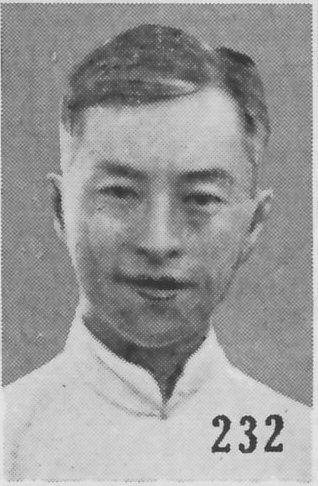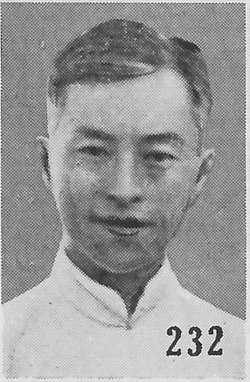Top Qs
Timeline
Chat
Perspective
Chen Lifu
Chinese politician From Wikipedia, the free encyclopedia
Remove ads
Chen Lifu (traditional Chinese: 陳立夫; simplified Chinese: 陈立夫; pinyin: Chén lì-fū; Wade–Giles: Ch'en Li-fu; 21 August 1900 – 8 February 2001) was a politician in the Republic of China. He was a close advisor of Chiang Kai-shek. With his brother Chen Guofu, he led the CC Clique within the Kuomintang.
Remove ads
Life and career
Summarize
Perspective
Chen was born in modern Wuxing District, Huzhou, Zhejiang in 1900. His father, Chen Qiye and his uncles, Chen Qimei and Chen Qicai were all anti-Qing revolutionaries and later Kuomintang members. In 1925, he formally joined the Kuomintang (KMT) in San Francisco after receiving his master's degree in mining engineering from the University of Pittsburgh.[1] On 9 January 1926, Chiang Kai-shek hired Chen as his confidential secretary.[2] In 1927, Chiang appointed Chen to head the Investigation Section of the Organization Department of the KMT[3] Chen and elder brother Chen Guofu became heads of the Kuomintang's secret service, leading a political faction known as the CC Clique.[4]
In late 1935, China faced the looming threat of war with Japan, and Chiang decided to send Chen to the Soviet Union to negotiate a treaty of mutual military assistance. However, Chen flew to Berlin in disguise, and while preparing to go on to Moscow, preliminary negotiations broke down and he was recalled.[5] In the fall of 1936, Chen was Chiang's representative at a series of secret meetings with Chinese Communist Party representative Pan Hannian, where the two sides attempted to negotiate a united front against the Japanese.[6] This attempt failed, leading to the Xi'an Incident.
In 1938, Chen was again promoted, becoming the minister of education. Chen held this position until 1944.[7] After the end of the Second Sino-Japanese War, he became vice president of the Legislative Yuan.
Chen went to the United States to support Thomas E. Dewey's campaign in the 1948 United States presidential election, a move that earned the Kuomintang the ire of Harry S. Truman. With the Kuomintang defeat in the Chinese Civil War, Chen went to Taiwan. Under pressure from Chen Cheng and others, he resigned from politics and moved to the United States. He did not permanently return to Taiwan until 1968, 3 years after Chen Cheng's death.[8]
In Taiwan, Chen served as the vice chairman of the Chinese Cultural Renaissance committee, the chairman of the Confucius-Mencius Society, and the chairman of the China Medical University. He died in Taichung on 8 February 2001 at the age of 100.[8]
Remove ads
References
Bibliography
Wikiwand - on
Seamless Wikipedia browsing. On steroids.
Remove ads

